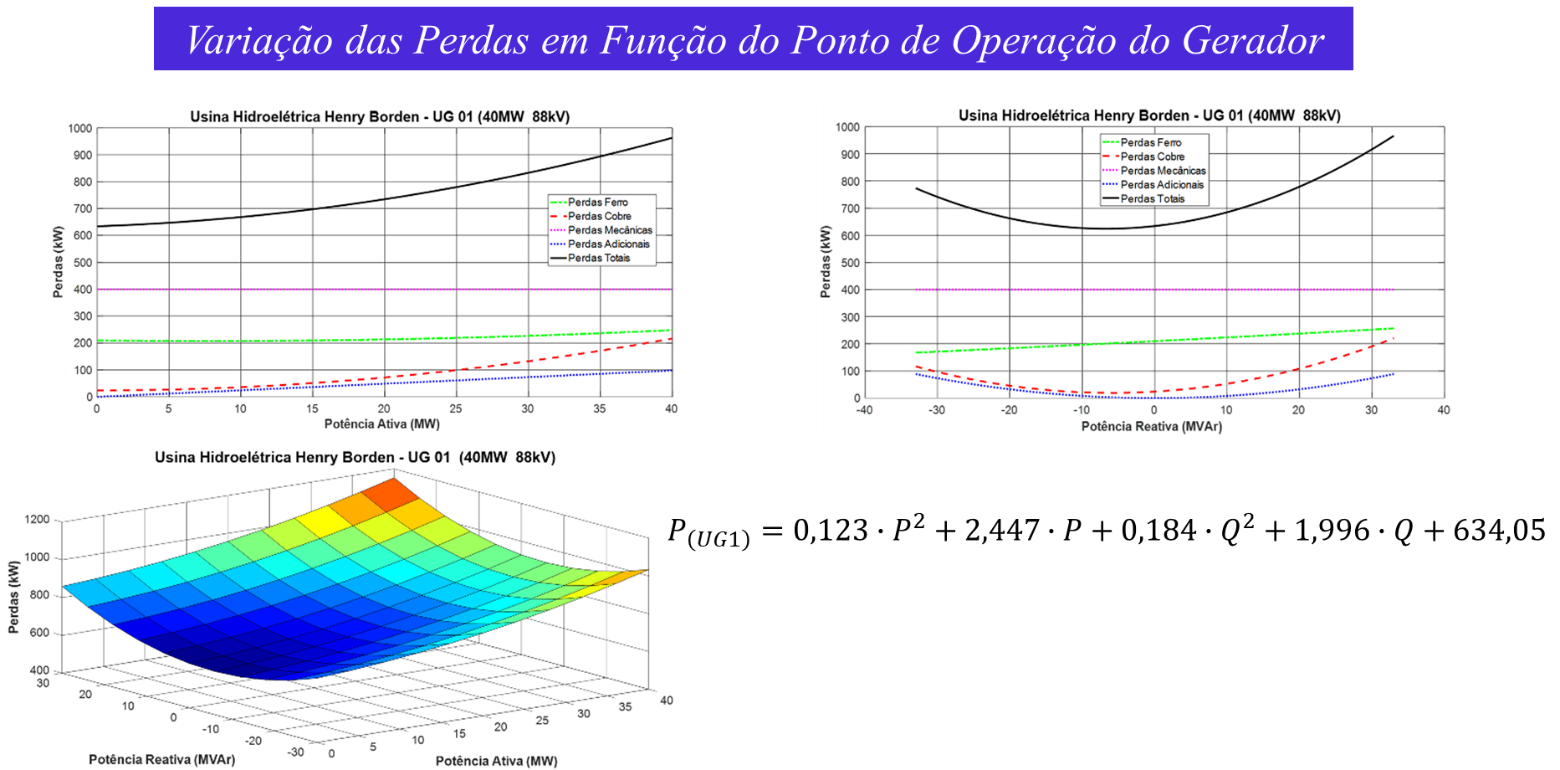Revisiting the Analysis of Losses and Fuel Consumption in Synchronous Generating Units during the Production of Active and Reactive Energy
Keywords:
Active and Reactive Power, Efficiency, Fuel Consumption, generating unit, lossAbstract
This article analyzes the losses, efficiency and fuel consumption of the generating units during the process of producing active and reactive energy. It presents a proposal for tests to determine the losses of the generating units already installed in the plants, proved by the actual application in a hydroelectric generating unit and in a thermoelectric generating unit. The result obtained in the study is a general equation of losses as a function of the simultaneous generation of active and reactive power that were determined through the variations of the armature and field currents and the terminal voltage of the generating unit, which can be represented by a three-dimensional graph showing total losses at all possible operating points. Losses have a direct influence on the efficiency of each component of the generating unit, directly influencing fuel consumption at the many allowable operating points. The study also showed the fuel consumption and loss curves in real hydroelectric and thermoelectric generating units installed in Brazil. With the determination of efficiency at each point of operation, it allows determining a weighting factor based on the value of the active and reactive energy generated, culminating in the proposition of an index that reflects the total production cost of each generator for an entire power plant. This makes it possible to divide the requested active and reactive energy in detail between less expensive generating units of the same hydro or thermal generating plant
Downloads


